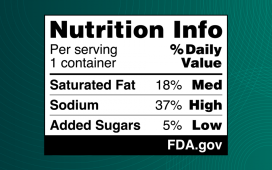Similar average advanced colorectal neoplasia per colonoscopy seen with CADe-enhanced and conventional colonoscopy
By Elana Gotkine HealthDay Reporter
TUESDAY, Oct. 22, 2024 (HealthDay News) — Compared with conventional colonoscopy, computer-aided detection (CADe) system-enhanced colonoscopies have an increased rate of adenomas per colonoscopy and higher adenoma detection rates, according to a review published online Oct. 22 in the Annals of Internal Medicine.
Saeed Soleymanjahi, M.D., M.P.H., from Mass General Brigham and the Harvard School of Medicine in Boston, and colleagues conducted a systematic review to compare the performance of CADe-enhanced and conventional colonoscopy using data from 44 randomized clinical trials with 36,201 cases.
The researchers found that the average adenoma per colonoscopy was higher with CADe-enhanced versus conventional colonoscopies (incidence rate difference, 0.22), as was the adenoma detection rate (44.7 versus 36.7 percent; rate ratio, 1.21). The average advanced colorectal neoplasia (ACN) per colonoscopy was similar, but the ACN detection rate was higher with CADe (12.7 versus 11.5 percent; rate ratio, 1.16). Resection of almost two extra nonneoplastic polyps per 10 colonoscopies and longer total withdrawal time (0.53 minutes) occurred with use of CADe systems.
“We find that use of CADe systems results in increased detection of overall colonic polyps and adenomas with equivocal findings for ACN,” the authors write. “Future studies with focus on more important clinical outcomes, such as interval postcolonoscopy CRC, and designed with randomization of physicians rather than patients may be considered to better evaluate the effect of these systems.”
Copyright © 2024 HealthDay. All rights reserved.








